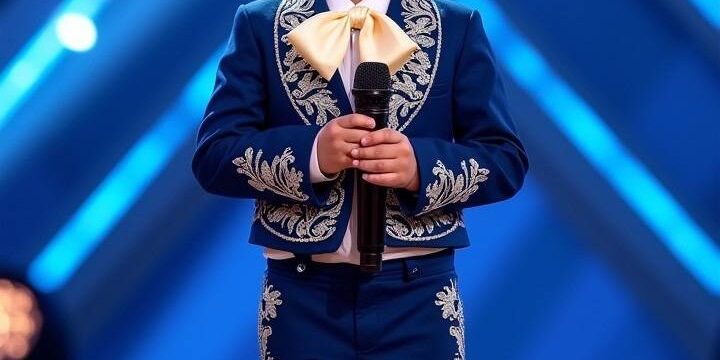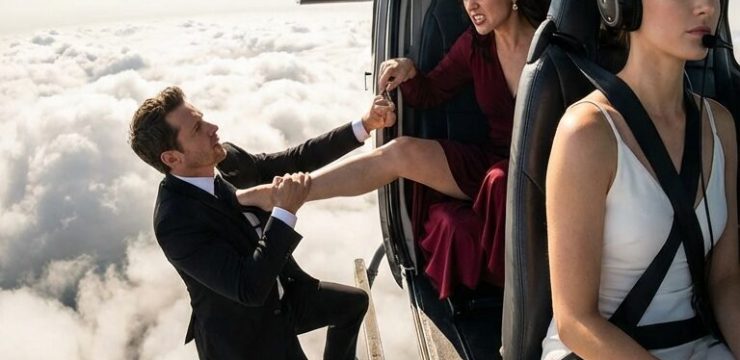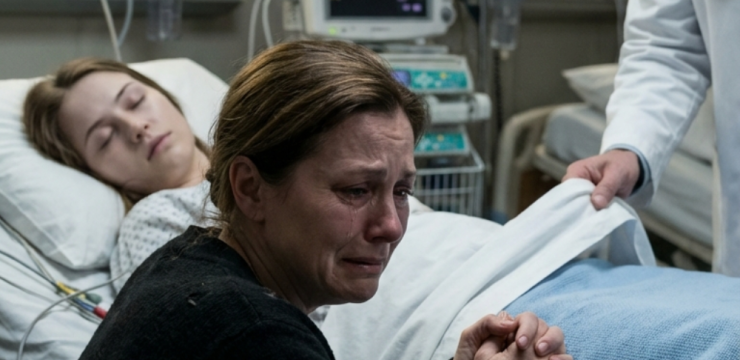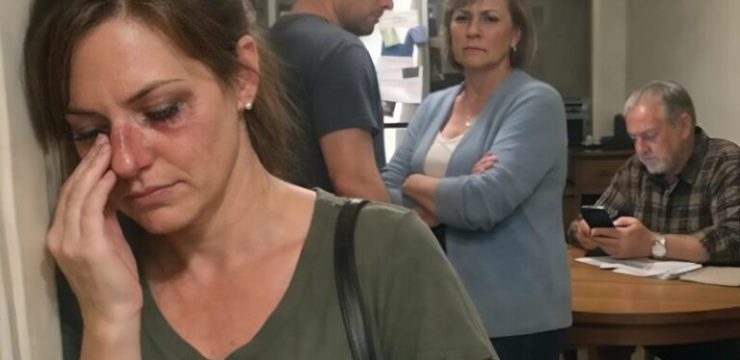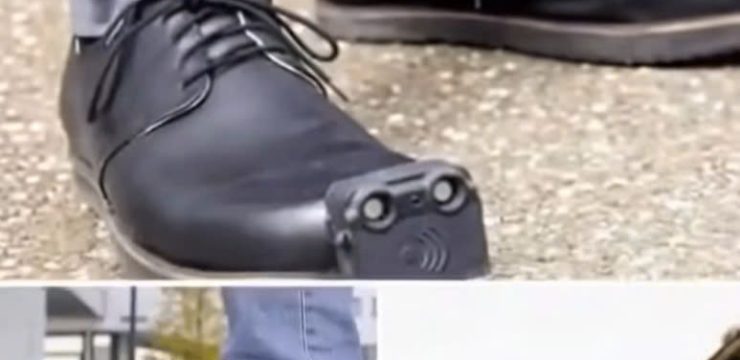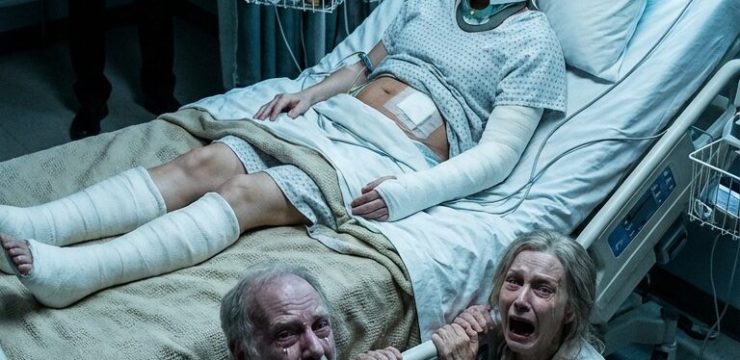Adam Rivers had spent over a decade working at the same warehouse in a quiet Chicago suburb. It wasn’t the kind of job that made headlines, but it paid the bills and gave him stability for his ten-year-old daughter, Lily. Each morning, as fluorescent lights buzzed overhead and the scent of oil filled the air, Adam moved through his routine—steady, dependable, unseen. But one morning would change everything. While checking inventory, he caught movement in the far corner of the loading area, a place that should have been empty. Approaching carefully, Adam found a man slumped against a stack of crates. The stranger’s leather jacket was torn, his face bruised, one eye swollen shut. Despite his battered state, he carried a quiet strength. The warehouse cameras didn’t reach this corner, and Adam knew what helping could mean for his job. Yet something in the man’s expression—a mix of exhaustion and dignity—made him act. Adam reached into his lunch bag, pulled out a bottle of water, and handed it to the man. The biker took it with trembling hands, nodding once before disappearing into the darkness without a word. That brief moment lasted less than a minute but would transform Adam’s life forever.
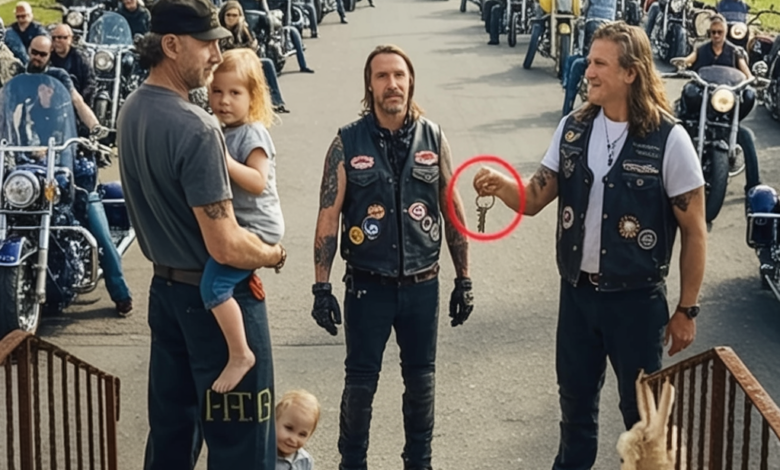
A few days later, Adam’s world collapsed. His manager, Todd Coleman, summoned him to the office. “You were seen aiding an intruder,” Todd said coldly. “That’s a breach of company policy. You’re terminated immediately.” Adam tried to explain, “He was hurt—I just gave him water,” but his words fell on deaf ears. Security escorted him out without even letting him collect his belongings. Sitting on the curb outside, Adam felt the weight of defeat pressing on his shoulders. Losing his job meant losing their stability, their home, and everything he had worked for. That night, he dreaded telling Lily. When he finally did, she hugged him tightly and whispered, “It’s okay, Daddy. You’re still my hero.” Her words broke something open in him—a mix of sorrow and pride that no manager could take away.
A few evenings later, Adam was sitting at the kitchen table surrounded by unpaid bills when a low rumble began outside. At first, it sounded like distant thunder, but soon the vibrations shook the windows. He pulled back the curtain and froze—forty motorcycles lined the street, chrome gleaming under the streetlights. He instinctively shielded Lily behind him as the engines went silent. Then he saw a familiar face—the injured biker from the warehouse, now fully healed and standing tall. He stepped aside to reveal a silver-bearded man with a calm but commanding presence. “You helped one of ours,” the man said, his voice rough like gravel yet warm.
“I only gave him water,” Adam replied, uncertain and wary.
“And no one does that anymore,” the man said, handing him a polished silver key. “Come with us. There’s more you need to see.” Lily peeked from behind her father, her voice small but curious. “Are you superheroes?” she asked. The man chuckled softly. “No, kid. Just people who don’t forget.”
They led Adam and Lily to a van parked at the end of the street. Inside sat a gleaming black Harley-Davidson, freshly restored with crimson accents. The silver-bearded man gestured toward it. “This was your father’s bike,” he said. “Rusty Rivers. Rode with us back in the ’80s. A good man—always helped others, never asked for anything.” He handed Adam a faded photograph of Rusty standing next to a younger version of the biker Adam had helped. “He died too young,” the man added quietly.
The realization hit Adam hard. These men weren’t strangers—they were his father’s old brothers-in-arms, members of the same motorcycle club his dad once rode with. They weren’t there to repay a favor; they were there to continue a legacy. The convoy guided Adam to an old garage freshly painted and filled with tools. A new sign hung above the entrance: Rivers Customs. His father’s name—his inheritance of heart, not wealth.
Adam hesitated. “I don’t have the skills. I don’t even know where to start.” Ridge, the biker he had helped, smiled. “Then we’ll teach you. Your old man taught half of us. Now it’s our turn.”
And so began a new chapter. Days turned into weeks, and Adam learned the craft of restoration. He repaired engines, welded frames, and found meaning in the hum of machines. Lily became his partner, sketching motorcycle designs that the bikers proudly displayed in the shop. The work was honest, the hours long, but for the first time in years, Adam felt alive. Customers came not only for repairs but for the warmth and compassion that filled the place.
Word spread quickly. Locals told stories of the single father who rebuilt his life through kindness. Reporters arrived, capturing photos of the modest garage surrounded by rows of gleaming bikes. Ridge summed it up best during an interview: “This place was built on compassion. That’s rarer than chrome.”
Rivers Customs became more than a business—it became a second home for people searching for a fresh start. Struggling teens found jobs, veterans found purpose, and lost riders found family. Lily’s drawings decorated the walls, her name painted in gold beside her father’s. The once-broken man became a pillar of hope in his community.
Months later, on Christmas Eve, the sound of forty engines filled the air again. This time, the bikers weren’t there for Adam—they came for Lily. Ridge knelt down, handing her a custom pink leather jacket with her name embroidered in gold and a helmet that shimmered with red flames. “Little Rivers,” he said with a grin, “you’re one of us now.”
Tears welled in Adam’s eyes as he watched his daughter beam with pride. That one small act of compassion—offering water to a stranger—had come full circle. It had restored his faith, rebuilt his future, and connected generations through loyalty and love.
Whenever someone asked how it all began, Adam would smile humbly and say, “I didn’t do anything special. I just didn’t look away.”
And that simple choice—to see another human being’s pain and respond with kindness—became the spark that turned loss into legacy, proving that sometimes, one small act of goodness can echo louder than a thousand engines.
